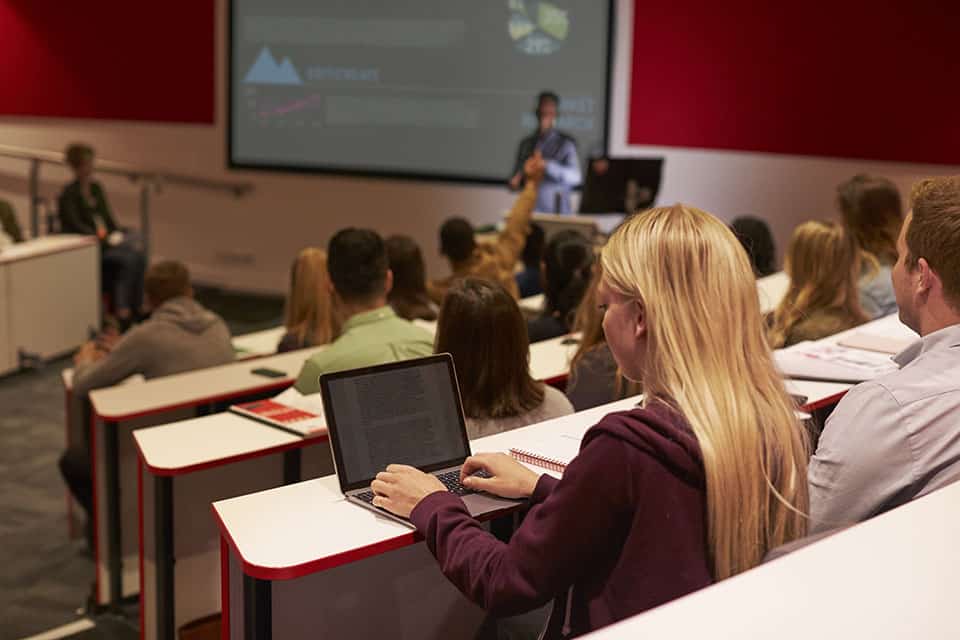Old Education System vs. New Schools, What is Better?

You might have heard, especially when in a circle of seniors, that the old education system is better than the modern education system. Education, a systematic approach of progressive learning for mental capacity building, is all about dynamism. If you observe neutrally you will find that the ‘old vs. new’ education system debate is mainly focused on content structure, changing medium, and of course the purpose-driven outcome i.e. employability.
When it comes to passing the verdict on a better choice between old and new education systems, one needs to understand the core goal of education in the context of contemporary socio-economic realities. Unlike the old education system, when it was more focused on individuality and exclusivity as there wasn’t much load on the system, the modern education system evolved to serve the masses on a large scale. Although the core goal of education remains to be progressive ‘mental capacity’ building, at least in theory, the old school of thought often complains about the lack of value creation in new schools.
Criticism isn’t totally invalid, but it also ignores the advantages of a modern education system based on science, technology, engineering, and mathematics (STEM). Unlike the traditional classroom-based books and theoretical learning, modern education is taking it beyond the page limits of the traditional system to learning through experimentation and experience. If you are worried about selecting the right education system, here is the simple comparison between old and new schools to help you judge better:
Theoretical or Practical Learning
The old education system is basically focused on imparting knowledge through books and numbers. Students might be well versed in theoretical aspects of learning, but lack the skill to implement learning in the practical world. The modern education system maintains the balance of theoretical and practical learning. In new schools, the emphasis remains on igniting the passion for practical learning and building the inquisitive thinking process. This helps in shaping the highly curious and creative mind, ready for understanding the complexity, from all possible dimensions.
- Robotic or Creative Mind
The old education system might be perfect, with defined rules and regulations, in producing equal minds with the robotic temperament of replication. This system, where everything is defined in the right or wrong parameter, leaves no room for curiosity, creativity, and experimentation. On the other hand, the modern education system shapes the mind for creative thinking with the freedom to question and find suitable answers through experimentation. - Memorization or Critical Thinking
Progressive learning is common in both the old and new schooling system. In the traditional education system, the focus remains on imparting subject-specific theoretical knowledge and memorization based evaluation and progression. The new schooling system has been scientifically designed to trigger the passion for experimental learning based on critical thinking. They learn to question and mobilize resources to find practical solutions. The activity-centric approach shapes students in a better manner face the realities of the world with open thinking and desired flexibility. Unlike the old system where one is taught about the occurrence of certain phenomena, the new schools train students to question and seek answers for what, why, and how. - Boring Lectures or Interactive Learning
The old education system is solely based on chapter-wise lectures and routine evaluations through examinations. Frankly, the effectiveness of the sermon-model is questionable and students, except exceptions, find it extremely difficult to grasp anything in a live classroom. Unlike this boring approach, the new schools offer an open-system of learning beyond books, classrooms, and lectures. Students in new schools learn through informative interactivity. The interactive approach helps students in learning effective communication, team management, leadership, and several other real-life skills. - Stressful Grading or Enjoyable Scoring
The old education system is totally based on memorized performance. One gets good, better or best grades only based on the memorization parameter. The focus remains only on knowing not understanding concepts. On the other hand, the new schooling system emphasizes critical-thinking based understanding of concepts with real-life experimentation and application. In the modern system, it is not just about memorization but smart memorization based on practicality. Unlike stressful learning in the old education system, students in new schools find it very easy and enjoyable to learn and score.
The modern education system is once again heading towards individuality and exclusivity, thanks to the digital technological advancements making it possible to track and shape students according to core skills. It is now possible to look beyond the scorecards and let students flourish in a free atmosphere and be what they want to be with an open and inquisitive mind.
Bring the best of the CEOWORLD magazine's global journalism to audiences in the United States and around the world. - Add CEOWORLD magazine to your Google News feed.
Follow CEOWORLD magazine headlines on: Google News, LinkedIn, Twitter, and Facebook.
Copyright 2025 The CEOWORLD magazine. All rights reserved. This material (and any extract from it) must not be copied, redistributed or placed on any website, without CEOWORLD magazine' prior written consent. For media queries, please contact: info@ceoworld.biz












